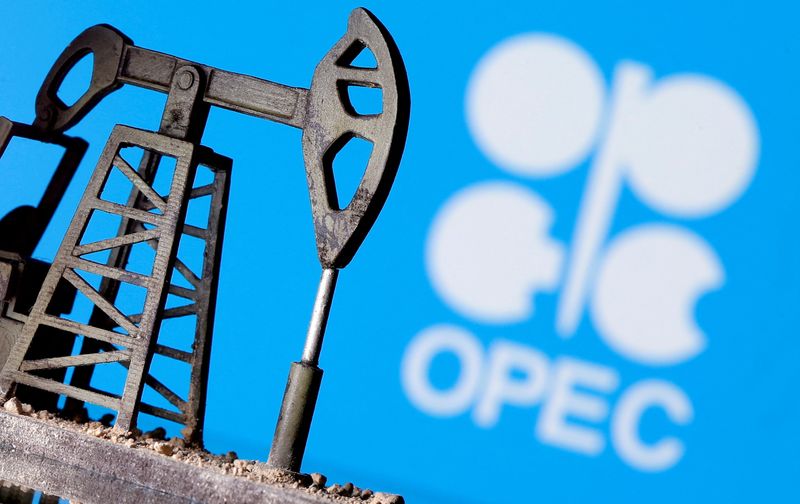LONDON (Reuters) - OPEC and its allies, including Russia, agreed on Sunday to widen crude oil production cuts to 3.66 million barrels per day (bpd) or 3.7% of global demand.
The surprise announcement helped push up prices by $5 per barrel to above $85 per barrel.
Here are the main reasons why OPEC+ is cutting output:
CONCERNS ABOUT WEAK GLOBAL DEMAND
Saudi Arabia has said voluntary output cuts of 1.66 million bpd on top of the existing 2 million bpd cuts were made as a precautionary measure aimed at supporting market stability.
Russian deputy prime minister Alexander Novak said the Western banking crisis was one of the reasons behind the cut as well as "interference with market dynamics", a Russian expression to describe a Western price cap on Russian oil.
Fears of a fresh banking crisis over the past month have led investors to sell out of risk assets such as commodities with oil prices falling to near $70 per barrel from near an all-time high of $139 in March 2022.
A global recession could lead to lower oil prices. Redburn research said the size of the latest cut was probably overdone unless OPEC feared a major global recession.
PUNISHING SPECULATORS
The cut will also punish oil short sellers or those who bet on oil price declines.
Back in 2020, Saudi Energy Minister Prince Abdulaziz bin Salman warned traders against betting heavily in the oil market, saying he would try to make the market jumpy and promising that those who gamble on the oil price would be "ouching like hell".
Prior to the latest cut, hedge funds had reduced their net position in U.S. benchmark WTI oil to just 56 million barrels by March 21, the lowest since February 2016.
Their bullish long positions outnumbered bearish short ones by a ratio of just 1.39:1, the lowest since August 2016.
"The latest cut would hurt those who bet against oil really badly," said a source familiar with OPEC+ thinking.
SEEKING HIGHER PRICES
Many analysts said OPEC+ was keen to put a floor under oil prices at $80 per barrel while UBS and Rystad predicted a jump back to $100.
However, excessively high oil prices represent a risk for OPEC+ as they speed up inflation, including for goods the group needs to purchase.
They also encourage speedier production gains from non-OPEC members and investments in alternative sources of energy.
Goldman Sachs (NYSE:GS) said OPEC's power has increased in recent years as U.S. shale responses to higher prices have become slower and smaller, in part because of pressure on investors to stop funding fossil fuel projects.
TENSIONS WITH WASHINGTON
Washington has called the latest move by OPEC+ inadvisable.
The West has repeatedly criticised OPEC for manipulating prices and siding with Russia despite the war in Ukraine.
The United States is considering passing legislation known as NOPEC, which would allow the seizure of OPEC's assets on U.S. territory in the event market collusion is proved.
OPEC+ has criticised the International Energy Agency, the West's energy watchdog in which the United States is the biggest financial donor, for releasing oil stocks last year, a move it said was necessary to bring down prices amid fears sanctions would disrupt Russian supply.
The IEA's prediction never materialised though, prompting OPEC+ sources to say it was politically driven and designed to help boost U.S. President Joe Biden's ratings.

The United States, which released most stocks, said it would buy back some oil in 2023 but later ruled it out.
JP Morgan and Goldman Sachs said the U.S. decision not to buy back oil for reserves might have contributed to the move to cut output.